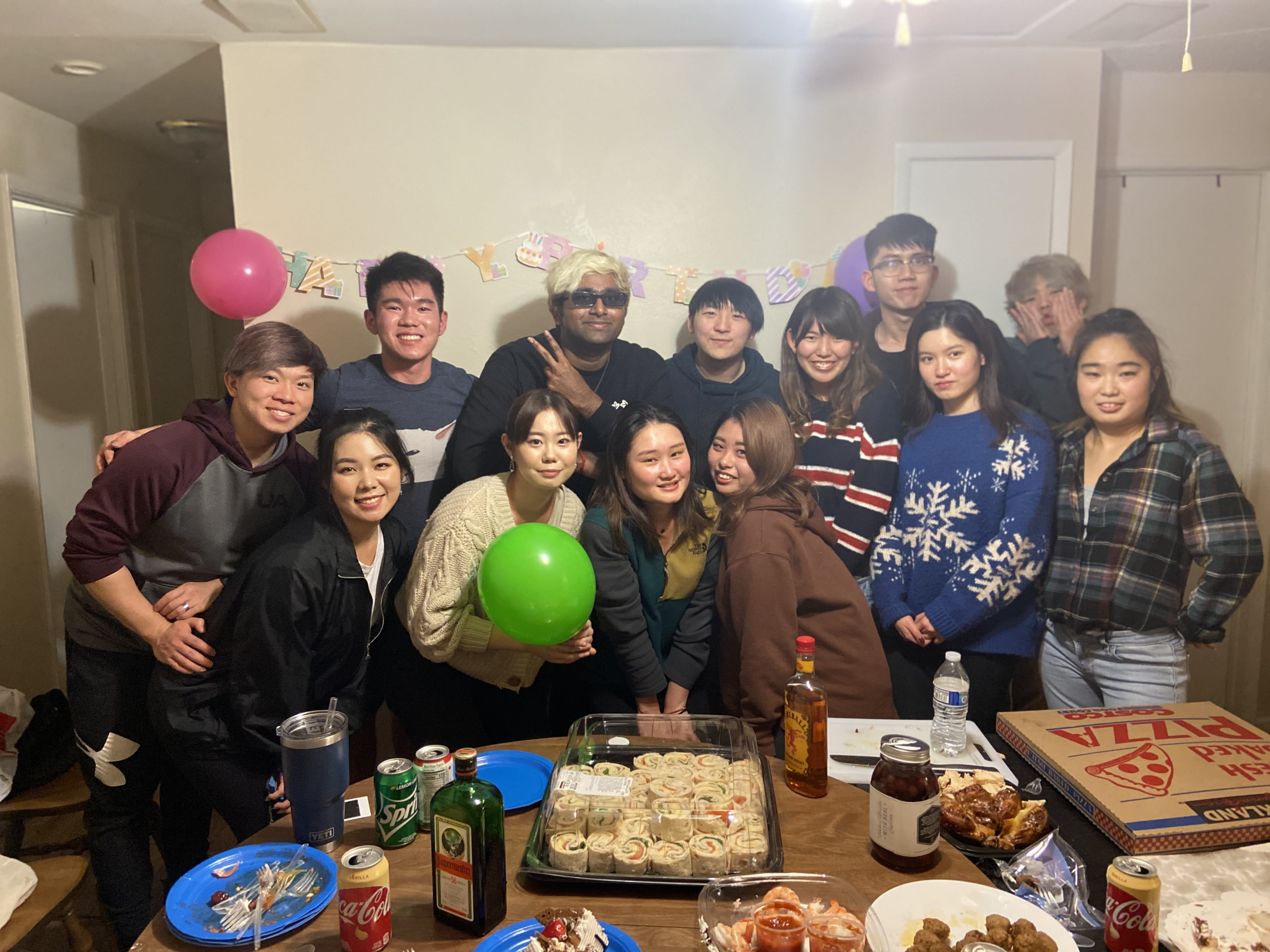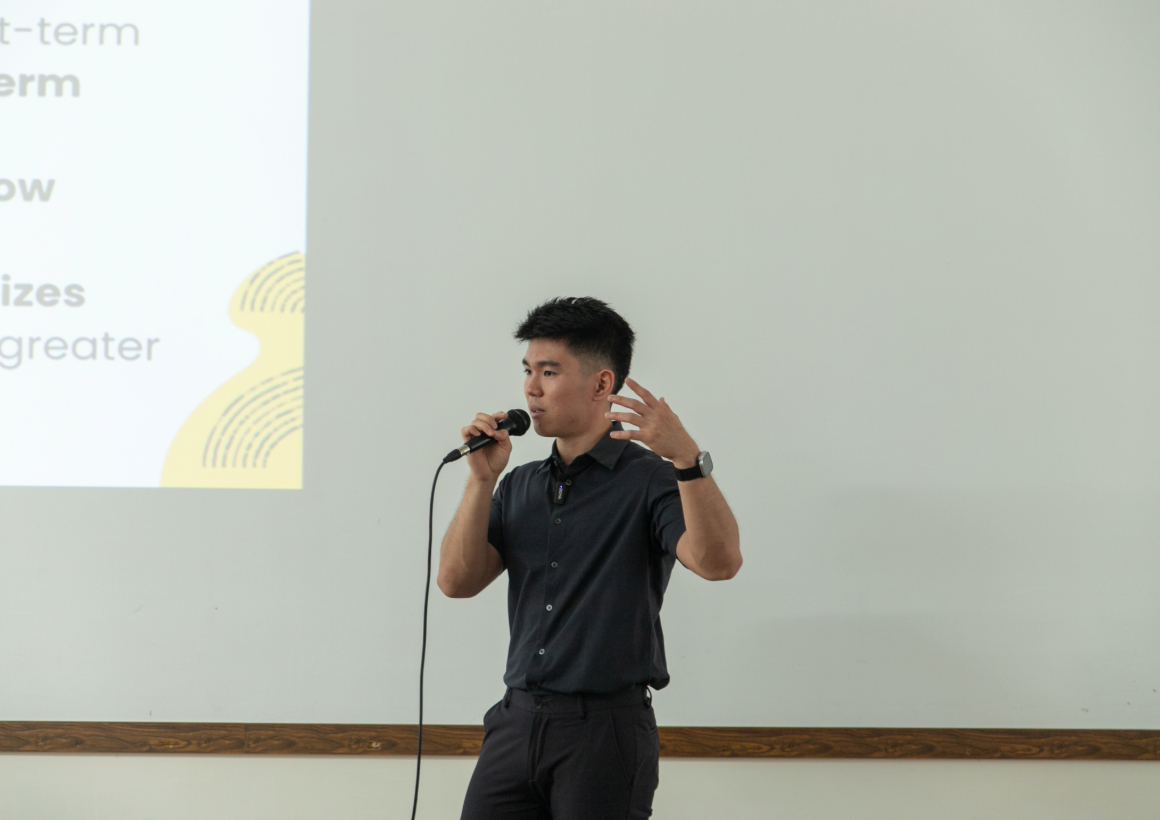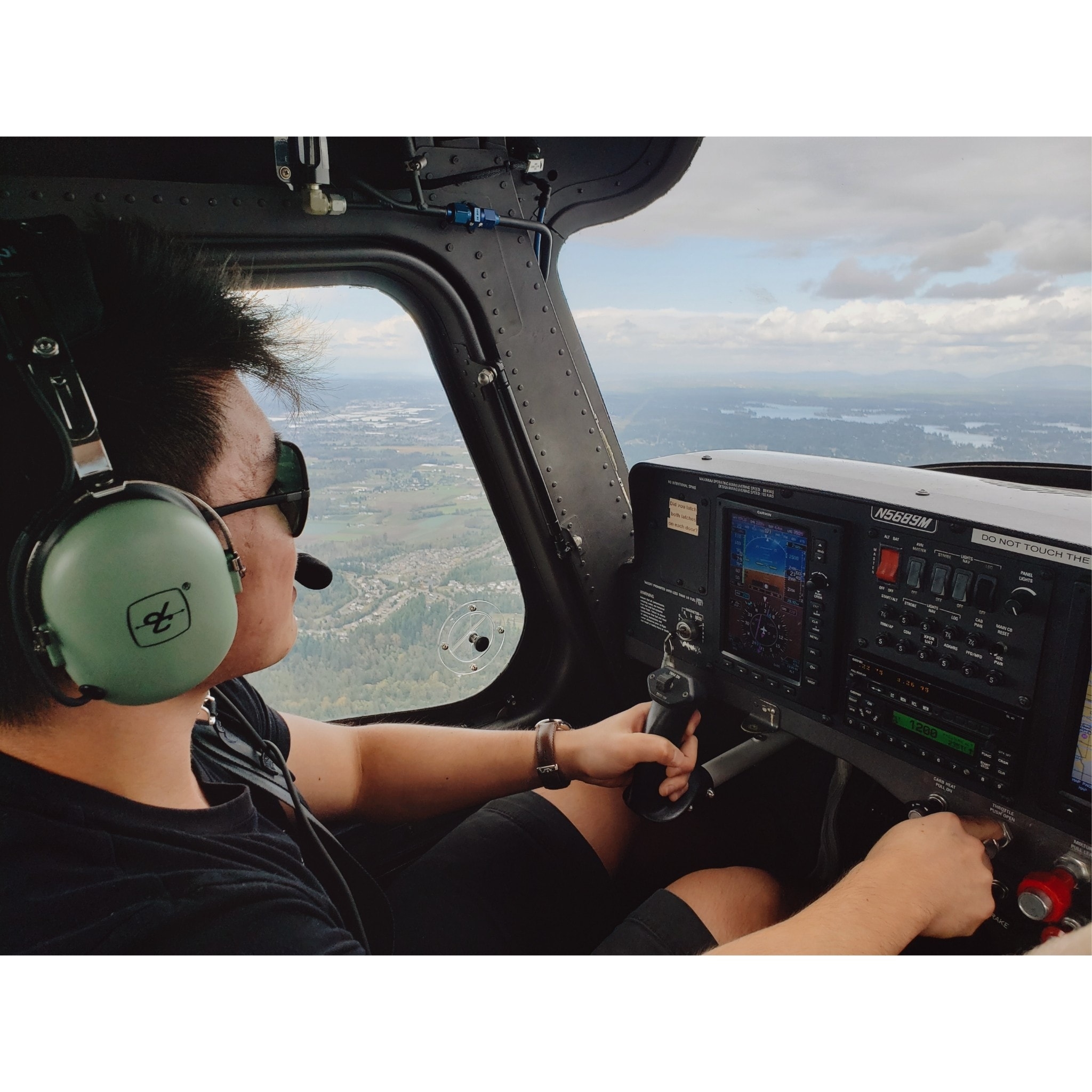Marcus Chai’s Journey From Reluctant Student to Head of Student Affairs

Ethan Quar
September 19, 2025
Marcus Chai is a 23-year-old Head of Student Affairs at Prime International Secondary School. His work spans student discipline, events, prefects, and well-being, shaped by a journey that began with aviation training in the United States before the pandemic led him to redirect his path into education.
Trained as a pilot in the US before COVID-19 ended his aviation plans.
Built income streams through tutoring, fitness training, guitar lessons, and digital marketing during his time at Taylor’s University.
Now leads student affairs at Prime, where he focuses on discipline, trust, and student growth.
Aspires to expand Prime and Ardence International Schools to 1,000 students and establish a dedicated campus within the next decade.
At age 23, Marcus Chai is already the Head of Student Affairs at Prime International Secondary School. His role stretches far beyond discipline: he manages the prefectural board, organises events, oversees sports days, and introduces new programmes that he believes will benefit his students. On any given day, he may be handling a bullying case, guiding a misbehaving teenager, or planning the next significant school activity.
If you took his age out of the question, a dedicated career in student affairs is still a surprising place for Marcus to be, given his past. Not long ago, he was the kind of student who disliked classes, questioned the purpose of exams, and never imagined himself in education. “I’ve always felt that an exam is just a piece of paper,” he recalled. “I never really liked academics; I hated the idea.”
The journey from a reluctant student to a leader in education was not an easy one. Marcus once trained as a pilot in the United States before the pandemic grounded that dream. He then ran weekend tuition classes, became a personal trainer, taught guitar, and even handled digital marketing for his family’s schools. Each role taught him something new about discipline, leadership, and resilience. What he eventually discovered is that learning is less about the syllabus and more about the people who guide you through it.
School Days and Early Mentors
At Nobel International School, Marcus was known more for his leadership roles than for his grades. He admitted that studying bored him, and that he struggled to see the point of tests and assignments. Yet, even in those years, the seeds of his current path were being planted.
In Year 10, Marcus was appointed assistant house captain, the youngest in the team. The role came with pressure and criticism from peers, but his house captain, Joseph, offered steady encouragement. “He always assured me that I can do it, I can do it, I can do it,” Marcus remembered. By Year 11, he had become house captain himself, leading competitions and events that gave him his first taste of responsibility.
Mentors outside the classroom also shaped him. His guitar teacher, Ang Ting, only a few years his senior, became a lasting influence. “I met him when I was 14, he was 18. And we are still good friends to this day. He really changed the way I learn instruments, and because he’s older, he was wiser, and he taught me things in life.”
These figures showed him that education could be more than textbooks. That idea was further solidified when Marcus discovered the gym in 2015. What began as a way to address body image issues soon became the foundation of his philosophy: consistency, resilience, and patience. “When I knew that I could change my body through sheer discipline and hard work, I believed that anything in life can be achieved with the same morals,” he said.
By graduation, Marcus still disliked exams, but he carried lessons in discipline, mentorship, and leadership that would prove more valuable than grades. These foundational values etched in during his adolescence would eventually pave the way to his own approach to guiding the youth.
The Pilot Dream That Didn’t Take Off
After graduating from Nobel, Marcus set his sights on becoming a pilot. He moved to the United States and enrolled at Green River College in Washington to pursue his private pilot licence. Flying had been a lifelong dream, and for a while, the plan seemed on track.
That changed in early 2020. Marcus returned home for a short break in January, just as COVID-19 began spreading. By March, he was due to return to the US, but the worsening situation kept him grounded.

By August, he decided to let the dream go for the time being. Costs were high, inflation was rising, and even his university friends in the US were stuck studying from home. “What ultimately led me to quit wasn’t that it was too difficult, but that sometimes the opportunity is there, just not at the right time.”
Letting go of the pilot dream was not easy, but Marcus chose to see it as a redirection rather than a failure. “I always knew that when one door shuts, two doors will open,” he said.
Finding Direction at Taylor’s
When Marcus decided to leave aviation behind, his next step was to secure a degree as quickly as possible. With his US credits not transferring directly, he enrolled in a foundation programme before moving into a degree in Team Entrepreneurship at Taylor’s University. The choice was practical; he wanted a qualification that would give him a safety net while he worked on building skills and income streams.
“I’ve always believed that in Malaysia, having a degree is still important,” he explained. “It gives you that cushion if everything else fails. At least you can land on your feet.”
Though academics were never his passion, Marcus approached his time at Taylor’s with determination. The classrooms may not have inspired him as much as he hoped, but the relationships did. Among the most influential figures was Mr. Yip, a business consultant and lecturer who became a mentor and continues to keep in touch. “We still talk about international schools, about plans to expand the business,” Marcus said. “That’s the kind of connection I value from my degree.”
Outside the classroom, Marcus built an extraordinary routine. He tutored groups of students every Saturday, trained clients as a personal trainer after classes, and taught guitar at night. On top of that, he learned digital marketing and began running ad campaigns. Each venture added another layer to his income, and together they formed the foundation of his entrepreneurial approach.
The effort paid off. Within two to three years, Marcus had not only supported himself through his degree but also earned back the money his family had spent on his pilot studies in the United States. For him, it was proof that discipline and hard work could turn setbacks into opportunities.
From Tutoring to Digital Marketing
While completing his degree, Marcus relied on multiple income streams to sustain himself and build momentum for the future. His tutoring business grew quickly, with Saturday classes attracting 20 to 30 students at a time. He even recruited other tutors to join, turning a side gig into a small-scale operation.
Marcus also taught himself Facebook ads out of curiosity during the pandemic. That interest soon became a necessity when his family’s school needed someone to manage their online presence. Rather than outsource the job, Marcus stepped in and began running Google Ads campaigns. “I learned directly from consultants and picked up how to run campaigns, optimise search terms, and make the most of the budget,” he recalled.
Stepping Up at Prime
After completing his degree, Marcus transitions into a full-time role at Prime International Secondary School, where he now serves as Head of Student Affairs. The move came sooner than expected. He had planned to join the school in 2026, but a reshuffle in the organisation opened a vacancy at the end of 2024. “I made the call to join immediately, and I never looked back.”

Day to day, his responsibilities go far beyond administration. He leads the prefectural board, coordinates sports days and trips, and serves as the point person when issues of bullying, misconduct, or student well-being arise. In his words, it often feels like being “the school police officer,” but one whose real mission is to guide rather than punish. He recalled the influence of Nobel’s former vice principal, Miss Lim, who instilled a culture of discipline that balanced strictness with care. It is a model he tries to uphold at Prime.
What fulfils him most are the moments when discipline turns into trust. “I’ve scolded many students, but a lot of times they become my good friends,” he said. “We are still very close until now.” For Marcus, providing the space he once had for growing and maturing to the next generation, and seeing firsthand his students transform for the better, are what make the role worthwhile.
Building for the Future
When asked what his plans were for the future, Marcus said his immediate goal was to grow Prime and Ardence International Schools from about 400 students today to 1,000 within five years, and to build a dedicated campus within the next decade. He understands that growth will require more than private funding, so he has begun cultivating networks and partnerships to support long-term sustainability.
For Marcus, however, growth is not just about numbers. The most rewarding part of his role is seeing students change. He recalled how guiding misbehaving teenagers often turns into lasting respect and even friendship. Those moments affirm his belief that discipline, mentorship, and patience can transform lives.

His advice to students reflects the same outlook: invest in skills that pay off for life. “Everything we do in life is sales,” he said. “Public speaking will really change you. Be exceptional at something and people will pay you for it.”
From the gym to the classroom, Marcus has learned that consistency and resilience compound over time. The boy who once dismissed exams as “just a piece of paper” is now shaping the educational journeys of hundreds of others, and planning far beyond the next report card.



